4 Steps to Help You Conquer Injury
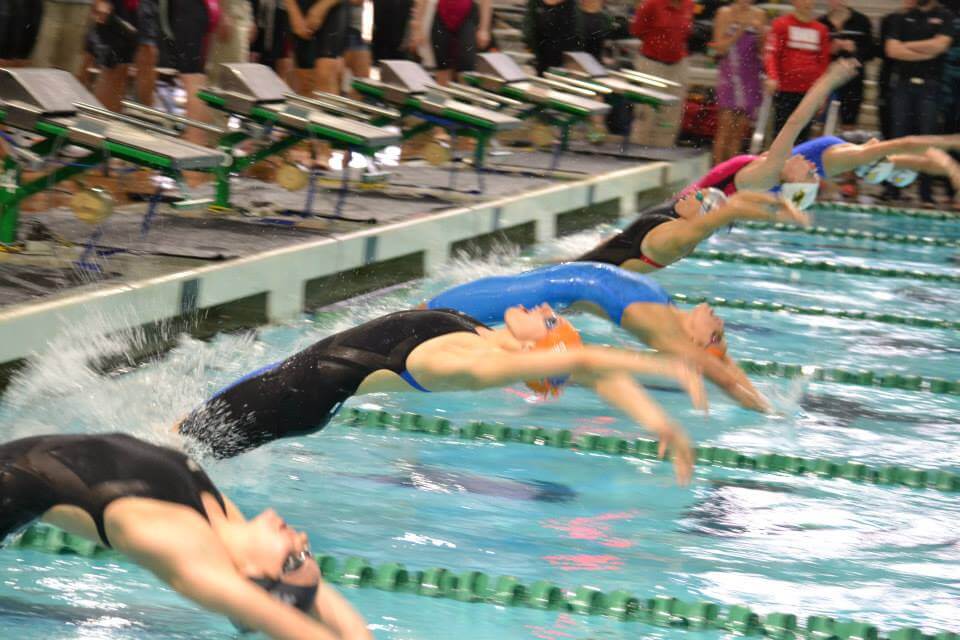
By Nikki Cannon, Swimming World Intern
I have just finished my swimming career at Boise State University. Swimming over the last 14 years has been an amazing journey, but not one without turmoil and hardships.
Right after signing my National Letter of Intent to commit to BSU my senior year of high school, an accidental misstep on the stairs changed the path of my swimming career forever.
I fell down the stairs and tore my rotator cuff in my right shoulder. At the time I knew something was wrong, but my family did not have the medical insurance to get an MRI or x-rays right away. I slowly lost movement in my arm over the next six months until I finally was forced to have surgery. My rotator cuff was sewn back together, and my acromion (which had been popping and rubbing against my AC joint) was shaved down.
It was by far the most physically painful ordeal I have ever been through. I won’t bore you with the details, but to be brief, my swimming career was never the same. I eventually had a second surgery while in college. I was never able to take another stroke of butterfly, and could never swim more than 2,000 yards of freestyle in a single practice.
Remarkably, my most successful years of swimming took place in college.
Maybe you are going through a minor aches and pains, maybe it is an injury that you have been dealing with for years, or perhaps you have just had a surgery.
Regardless, here are 4 tips that helped me not only survive, but thrive with my injury…
1. Be Proactive
I’m sure all of you have heard this before, but pre-rehab and strengthening exercises are extremely important. The fact of the matter is, even though strengthening exercises seem to take up a lot of time, they prevent so much future pain.
Set aside 10 minutes a day; it can be before or after practice, while you’re watching TV, whenever! Dedicate yourself to getting stronger in places you are weak, and you may never have to deal with extreme injuries! But what if you’re already dealing with an injury?
Well then…
2. Do your rehab, consistently and precisely!
This is a tip I wish I would have taken to heart sooner after being hurt. I found myself being so frustrated with my pain that I would think, “What’s the point of doing rehab? It never gets better.” I would constantly rush through my exercises without noticing my posture or body position. I was spending hours a week doing, literally useless movements!
When you’re doing exercises have your physical therapist or coach show you how to do the move correctly. Then when you practice them, make sure to have someone watch you, or even do it in front of a mirror! Working on repairing injuries is a lot of work, but keep at it. The more you are working at your rehab with the same passion and care that you approach your workouts, the more likely you are to overcome this setback!
3.Use your resources
Theodore Roosevelt once said, “Do what you can, with what you have, where you are at.” These words will never ring truer then when you are an injured swimmer. I would estimate that over the course of my four years of collegiate swimming, I kicked 60 percent of the time. I simply could not use my arms that much without reinjuring my shoulder.
But I made sure to make the most out of my kicking, and ultimately the strength in my legs helped me break a team record at my final conference meet. So do what you can! If your arms are hurt, kick — really utilizing your legs as assets in your race. If your knee or lower extremities are hurt, ask yourself, “How can I use this time to work and advance my pull/arm strength?” What can you do with dryland/weights to make sure the part of you that is healthy can get even stronger? Instead of viewing an injury as an obstacle, view this time as a chance to make a weakness even stronger!
Finally…
4.You will get better…so tell yourself!
When dealing with chronic injuries it’s very easy to get into a rut. It may start to feel like the injury will never get better, or that you will never be able to do everything to the extent that you used to pre-injury. Swimming is a sport where there’s a lot of time to think by yourself. This can be a blessing or a curse. In my case, I often spent my first two years of college thinking silently to myself during my workouts, “I will never get better.” And I didn’t.
It was not until the end of my junior year, and really even until my senior year, that I saw the benefits of positive thinking. A study done in 2008 surveyed over a thousand victims of whiplash injuries in Sweden. They asked participants how likely they thought they were to recover completely from the accident. It was found that those people who said they did not foresee a complete recovery were more likely to have lingering serious side effects in the following six months.
Believe in the process and rephrase the negatives! Instead of saying “I’m injured,” you might say, “My__ is hurt, but is getting better.” It seems like a silly change, but it makes a gigantic difference. Being hurt is not a permanent state of being. You will improve and be better!
Good luck with your recovery, and remember to keep forging forward!




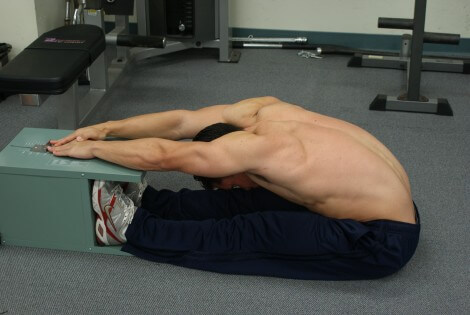
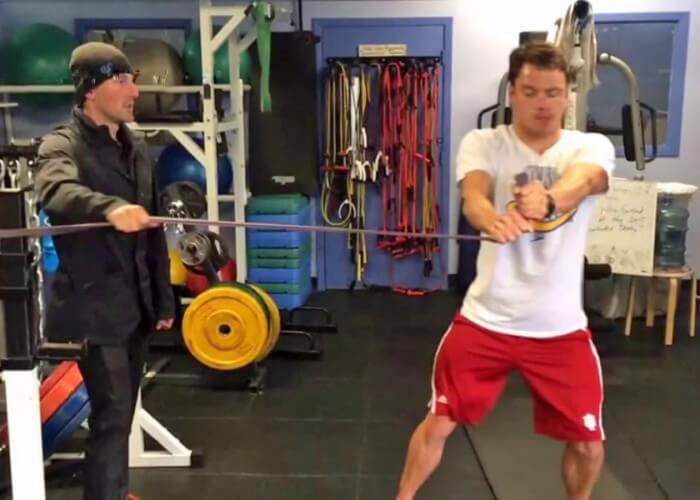
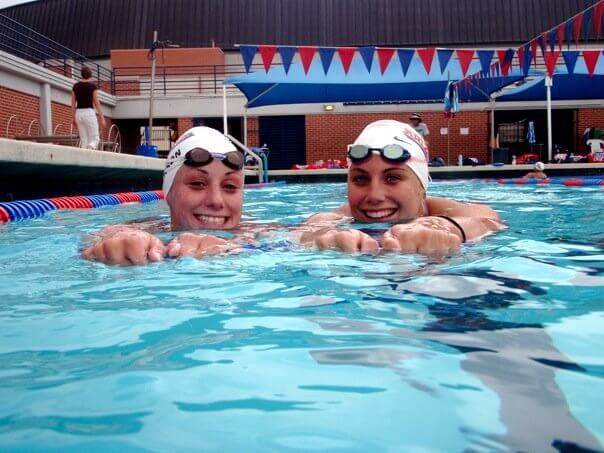
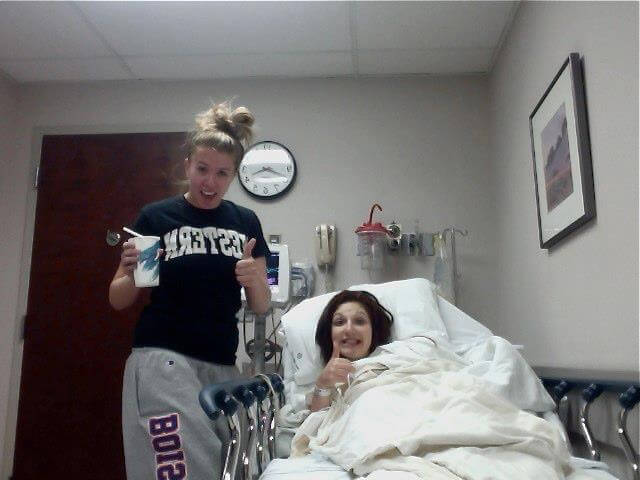
Great article Nikki! You are one Tough Nut! Go Broncos!
Cara Mendapatkan Uang Ratusan Ribu Perhari dengan Mudah
Sebuah cara baru, sederhana dan terpercaya yang akan memberikan Anda penghasilan melimpah dari internet.
Siapapun Anda, mulai sekarang bukan hal yang sulit lagi untuk Mendapatkan Uang Ratusan Ribu Perhari dengan Mudah
Caranya gampang sekali Klik disini ==>> http:/mesinvirtual+com/?id=Kesuksesaan
NB: Ganti Tanda +(plus) Dengan Tanda .(Titik/dot)
FB: Taufan Almaliq
SALAM SUKSES SELALU
Dapakan uang ratusan ribu perhari dengan sangat mudah
Sekarang gilIiran anda membuktikannya sendiri�
Kendall Kitahara you’re on your way!
What Nikki says is so true. Swimmers know the meaning of Perseverance. Period. Great article!
!
Jakob Pettit